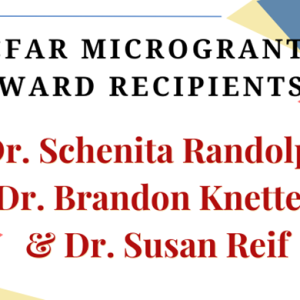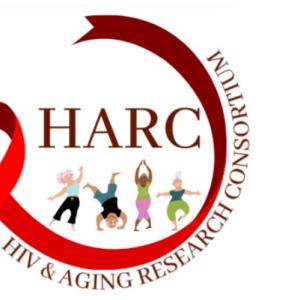Funding Highlight: Duke CFAR awards two CFAR Microgrants to Drs. Schenita Randolph, Brandon Knettel, and Susan Reif
The Duke CFAR recently awarded two Microgrant Awards. These one-year awards for up to $20,000 are intended to facilitate HIV/AIDS research by providing modest, but essential, resources that are not readily available from other sources. The Microgrant program is designed to support new NIH grant applications that will increase the HIV/AIDS funded research base at Duke.
Early Career Investigator Resources from the NIH Office of AIDS Research
We are pleased to announce the launch of a new resource for Early Career Investigators from the NIH Office of AIDS Research (OAR) intended to centralize relevant information for investigators and provide easy access to grant opportunities, basic information, and other resources, such as training and capacity building programs.
Global Equity During Pandemics: Lessons from HIV and COVID for Designing a New Paradigm
Ongoing global Covid-19 vaccine and therapeutic inequities threaten to prolong and exacerbate the pandemic for all countries. As advocates, academics, and policymakers alike call for the U.S. and other wealthy nations to share these lifesaving resources with the world, it is prudent to consider the lessons learned from the HIV pandemic that can be translated into this current moment.
Duke CFAR awarded supplement through CFAR Diversity, Equity, and Inclusion Pipeline Initiative for program led by Dr. Nwora Lance Okeke
The Duke Center for AIDS Research (CFAR) has received an administrative supplement of $150,000 as part of the CFAR Diversity, Equity, and Inclusion Pipeline Initiative (CDEIPI). Duke CFAR’s submission to the program is entitled: “Evidence2Practice (E2P): Leveraging implementation science to recruit HBCU/MSI students into careers in HIV research”
Thuy Le, MD – Associate Director, Duke CFAR Clinical Core
Neglected Tropical Disease
When Thuy Le went to Vietnam in 2008 to conduct research on HIV drug resistance, what she saw in the country’s AIDS hospitals changed the course of her career.
New 2022 RFA for the HIV/Aging Pilot Program
For the 2022 pilot funding call, HARC will fund 2-4 pilot projects, at $40,000 each, focusing the application of geroscience to better understand aging in people living with HIV (PLWH). These are intended to be one-year pilot grants. Pilot applications are welcome from (a) faculty investigators who have not yet had an R01 or other substantial NIH funding (i.e., new investigators by NIH definitions) or (b) Geroscience faculty investigators at any rank who are new to HIV research. Post-doctoral fellows are NOT eligible unless they will be a faculty member on or before July 1 2022.
Workshop Series: Quantitative Methods for HIV Researchers
2021 -2022 Virtual Workshop Series: Quantitative Methods for HIV Researchers
The series consists of the following modules:
Part I: Data Science Workshops (Oct-Nov 2021)
Part II: Statistics Workshops (Jan – Feb 2022)
Part III: Assays Workshops (Mar - Apr 2022)
Call for Applications - Clinical Research with Electronic Health Records Data (CR-EHR) Course
Duke AI Health and the Duke Clinical & Translational Sciences Institute are pleased to announce a call for applications to the Clinical Research with Electronic Health Records Data (CR-EHR) Course. CR-EHR is an interdisciplinary course designed to engage both clinical and quantitative researchers in learning how to access and work with Duke EHR data.
Gilead Research Program
Gilead’s Research Scholars Program:
Advancing Science Together in HIV
Gilead’s Research Scholars Program supports innovative research from emerging investigators around the world to advance scientific knowledge in areas of unmet medical needs and improve the lives of patients everywhere.


